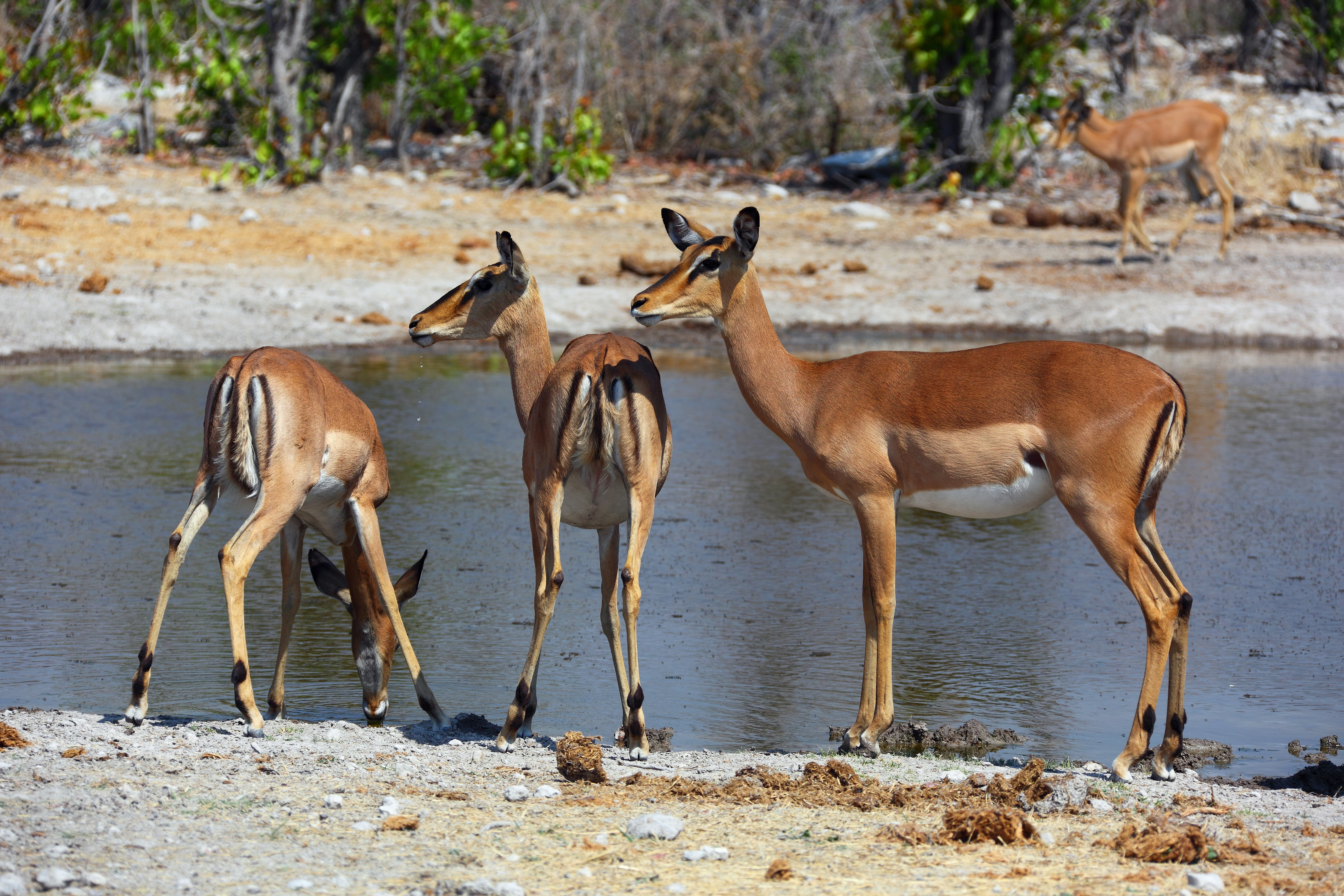Watering Hole on:
[Wikipedia]
[Google]
[Amazon]
 A watering hole or waterhole is a
A watering hole or waterhole is a
 A watering hole or waterhole is a
A watering hole or waterhole is a geological depression
In geology, a depression is a landform sunken or depressed below the surrounding area. Depressions form by various mechanisms.
Types
Erosion-related:
* Blowout: a depression created by wind erosion typically in either a partially vegetated sa ...
in which a body of water forms, usually a pond
A pond is an area filled with water, either natural or artificial, that is smaller than a lake. Defining them to be less than in area, less than deep, and with less than 30% emergent vegetation helps in distinguishing their ecology from th ...
or a small lake
A lake is an area filled with water, localized in a basin, surrounded by land, and distinct from any river or other outlet that serves to feed or drain the lake. Lakes lie on land and are not part of the ocean, although, like the much large ...
, where animals tend to gather to obtain water
Water (chemical formula ) is an inorganic, transparent, tasteless, odorless, and nearly colorless chemical substance, which is the main constituent of Earth's hydrosphere and the fluids of all known living organisms (in which it acts as a ...
.
A watering hole is "a sunken area of land that fills with water". Watering holes can form through a number of processes, one being from elephant
Elephants are the largest existing land animals. Three living species are currently recognised: the African bush elephant, the African forest elephant, and the Asian elephant. They are the only surviving members of the family Elephantidae an ...
s digging up termite mound
Mound-building termites are a group of termite species that live in mounds. These termites live in Africa, Australia and South America. The mounds sometimes have a diameter of . Most of the mounds are in well-drained areas. Termite mounds usually ...
s for nutrients in the soil, repeatedly digging at the same location until a depression large enough to hold a substantial amount of water. Watering holes may be ephemeral
Ephemerality (from the Greek word , meaning 'lasting only one day') is the concept of things being transitory, existing only briefly. Academically, the term ephemeral constitutionally describes a diverse assortment of things and experiences, fr ...
or seasonal
A season is a division of the year based on changes in weather, ecology, and the number of daylight hours in a given region. On Earth, seasons are the result of the axial parallelism of Earth's tilted orbit around the Sun. In temperate and po ...
.
A common misconception associated with watering holes is that, due to the common need for water, predator animals will not attack prey animals in the vicinity of the watering hole. This trope was exploited, for example, by Rudyard Kipling
Joseph Rudyard Kipling ( ; 30 December 1865 – 18 January 1936)''The Times'', (London) 18 January 1936, p. 12. was an English novelist, short-story writer, poet, and journalist. He was born in British India, which inspired much of his work.
...
in ''The Jungle Book
''The Jungle Book'' (1894) is a collection of stories by the English author Rudyard Kipling. Most of the characters are animals such as Shere Khan the tiger and Baloo the bear, though a principal character is the boy or "man-cub" Mowgli, ...
'', which describes a "truce" at the watering hole as a plot point. In fact, it has been observed that "lion
The lion (''Panthera leo'') is a large Felidae, cat of the genus ''Panthera'' native to Africa and India. It has a muscular, broad-chested body; short, rounded head; round ears; and a hairy tuft at the end of its tail. It is sexually dimorphi ...
s usually ambush their prey by hiding in long grass, often in close proximity to a watering hole".
One study noted that watering holes can serve as a locus of disease transmission
In medicine, public health, and biology, transmission is the passing of a pathogen causing communicable disease from an infected host individual or group to a particular individual or group, regardless of whether the other individual was previous ...
, and observed that "all animals displayed some degree of increased watering hole use with at least one metric of decreased water availability, suggesting that drying environments may contribute to increased parasite concentration at these hotspots across species".Georgia Titcomb, "The role of watering holes as hotspots of disease transmission in changing climates", U.C. Santa Barbara (2020).
References
External links
{{wiktionary, watering hole Depressions (geology)